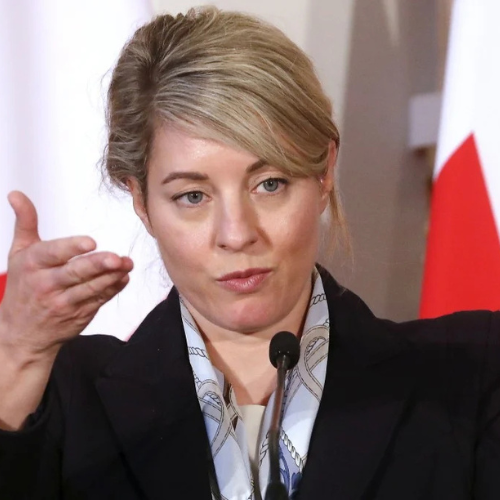In a significant move, Canada has announced sanctions against eight Chinese officials, accusing them of being involved in serious human rights violations. These actions have raised concern worldwide, particularly for the treatment of ethnic minorities in China’s Xinjiang region, Tibet, and among followers of Falun Gong, a spiritual practice.
What Are the Sanctions About?
The Canadian government’s sanctions target eight senior officials, some of whom are former high-ranking members of the Communist Party in China. These sanctions are a response to reported human rights abuses, including the alleged detention and mistreatment of over one million people in Xinjiang, a region in the far west of China. The individuals on the list are accused of being responsible for or involved in policies that led to mass arrests, forced labor, and harsh treatment of the Uyghur people, a Muslim ethnic group.
The sanctions were announced by Canada’s foreign ministry, which highlighted that these actions are in line with Canada’s commitment to protecting human rights around the world. The Canadian government is particularly concerned about reports of people being sent to detention camps, where they are said to have faced physical, psychological, and even sexual violence. These reports have sparked outrage globally, with several international organizations condemning the alleged practices.
13 US Military Firms Sanctioned: China’s Response to Taiwan Arms Deal
The foreign ministry also mentioned the ongoing repression of ethnic and religious groups in Tibet and the targeting of Falun Gong practitioners, who follow a spiritual practice that the Chinese government has consistently opposed. These measures are a part of Canada’s broader strategy to address human rights issues linked to China, which have been a growing concern in international diplomacy.
The Impact of the Sanctions
These sanctions mean that the targeted Chinese officials will face financial restrictions, including asset freezes. This will make it difficult for them to engage in property-related activities or financial transactions in Canada. The sanctions are also a message from Canada to the Chinese government, urging them to stop these reported abuses and fulfill their international human rights obligations.
Among those sanctioned are Chen Quanguo, the former Communist Party chief in Xinjiang, and Wu Yingjie, the former Communist Party head in Tibet. Both officials are accused of overseeing harsh policies in their respective regions, contributing to the alleged abuses. Canada’s Foreign Minister, Melanie Joly, stated that the country would not stand by and ignore these human rights violations.
US Sanctions Fawaz al-Akhras, Assad’s Father-in-law, Amid Syria Crisis
The sanctions are part of a broader international movement. The United States, the United Kingdom, and the European Union have already imposed similar sanctions on Chinese officials for their role in the human rights violations in Xinjiang and other areas. These measures are meant to hold Chinese officials accountable for their actions and to pressure China to change its practices.
Tensions Between Canada and China
The relationship between Canada and China has been tense for several years, especially since 2018. This was the year when Meng Wanzhou, a senior executive of Chinese telecom company Huawei, was detained in Canada at the request of the United States. Her detention led to the arrest of two Canadians in China, further worsening diplomatic relations between the two countries. All three individuals were eventually released, but tensions over political interference in Canada have continued.
Canada’s actions on human rights have further strained relations, especially since the country’s ambassador to China visited Xinjiang earlier this year and directly raised concerns with local officials. The sanctions come at a time when Canada and China were trying to restore some level of normal diplomatic relations. Canada’s Foreign Minister, Melanie Joly, had visited Beijing earlier in 2024 and met with Chinese officials in an attempt to improve the relationship.
However, this new round of sanctions shows that Canada is firm in its stance on human rights and is willing to take actions that may continue to anger the Chinese government. In response, the Chinese embassy in Canada has yet to comment on the sanctions, and it remains to be seen how Beijing will react.


